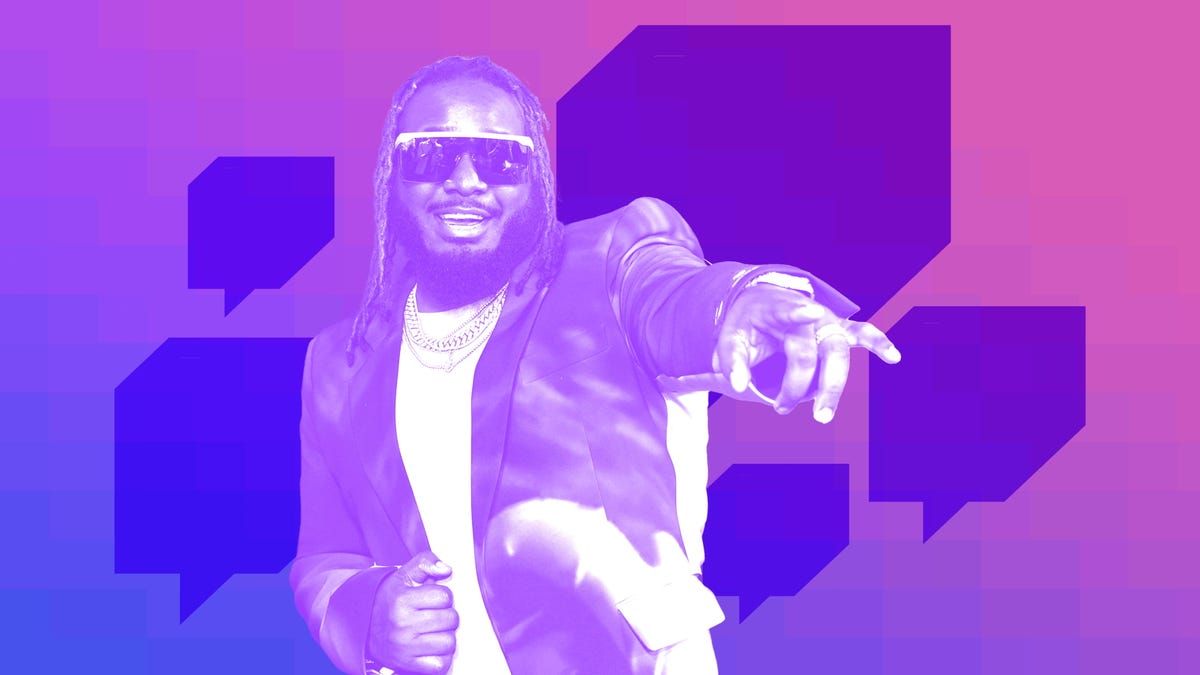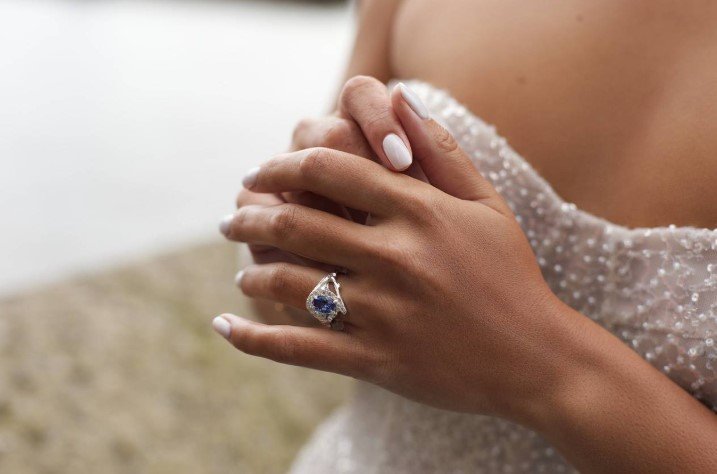Today there are famous people tweeting about Call of Duty and streaming on Twitch, something you might have at one point considered to be a more niche hobby reserved for the most hardcore gamers. But the industry is booming. HBO’s biggest TV show debut in the last ten years is about a zombie game. While Silk Road traders thousands of years ago had their methods of global and cultural diffusion, we have the internet to popularize the corners of our culture. So, yeah, your favorite musician is live, playing Dead Space or Breath of the Wild.
They’re interacting with their chatroom, hopping onto Discord the way any other streamer would. And musicians on Twitch, especially those who grew up alongside gaming, or who are in their 20s and have watched (not without sadness) video games overtake movie theaters and music are making an unofficial exchange when they stream, placing gaming closer to the traditional arts—music, painting, theater, and writing—than ever before.
22-year-old Maia makes delicate pop songs as mxmtoon (and provides Alex’s singing voice in narrative adventure game Life is Strange: True Colors). She started her chatty Twitch channel in 2018. Her art, to her, is inseparable from gaming.
“People often forget how connected music and gaming are to each other,” she tells me over email. “My understanding of music has always been very rooted in visual imagery, and that’s largely due to my love of the gaming space. With music, you benefit a lot from having a clear understanding of the ‘world’ you’re building for an album or song, and I’m thankful the roster of games that I’ve played so far in my lifetime has developed my sense of artistic directions.”
Maia has been gaming since childhood, when games were still largely considered a “boy” thing, and she remembers being “the only girl in [her] entire class that played video games.”
In keeping games so close her whole life, Maia says that they “have always been a central part of how I’ve found community or connected with friends, and I think that my history with them in that sense has actually helped me as I’ve gotten further into music.”
“My mindset and approach around the two has become more similar in the last few years,” she says.
It seems natural that Maia would feel games’ impact so fully when she’s spent so much time with them. But even newer gamers like synth-pop duo Magdalena Bay, made up of 27-year-olds Mica Tenenbaum and Matthew Lewin, feel games’ impact on their art as they get to know them and their communities.
They both started playing games only a year before starting their Twitch channel in 2020, when covid-19 padlocked most of the world. And though they’re relatively new to games, they can already recall the pleasant black hole of obsessing over one—The Legend of Zelda: Twilight Princess now “holds a special place in our hearts, forever,” Tenenbaum tells me over email—and getting inspired.
“I think we love the world-building that a game could provide, whether it’s in characters, plot, or just mood,” Lewin said. “We definitely look to do similar things in our music.”
Video games offer musicians minable fantasies, sounds, colors, and stories to get energized by like the shining crystal inside a geode, but Twitch appeals in more specific ways. Rapper T-Pain, for example, who popularized auto tune in modern pop, soundtracked the ‘00s club scene, and put on my very favorite NPR Tiny Desk concert, was moved by its social aspect. He was first inspired to stream a decade ago by a PlayStation event he was a part of, and eventually started his own Twitch channel in 2016. The first time he streamed, at that PlayStation event in 2013, he remembers “having this feeling that I wasn’t alone.”
“I wasn’t just by myself, just playing games, like I usually am in my room, not being able to talk to anybody,” he says over Zoom. “I’m an artist, so most of the time, I’m just in a hotel room, on the plane, and on the stage. Hotel room, stage, plane. I don’t really get to interact with people like that. Having [streaming] in my life added a new feeling to being on the road, and I wasn’t alone anymore.” T-Pain is currently CEO of Nappy Boy Gaming, a stream team and outpost of his record label Nappy Boy Entertainment, first founded in 2006.
Streamer and lead singer of Kero Kero Bonito (the band that performs the bubblegummy Bugsnax theme song) Sarah Midori Perry recently created a Discord server for her Twitch subscribers. She also thinks the streaming platform is a unique way to connect with games and people.
“I don’t think I’ve had a bad experience streaming, really,” she says. “It made playing games for me more interesting and more social than playing it by myself and not talking to anyone.”
Sometimes, particularly for younger artists, there’s an overlap between a musician’s established fanbase and their Twitch subscribers—“I’d imagine the type of people on our streams are generally similar to our listener base as a whole,” Lewin suggests. “I think everyone who watches our streams is there initially because they know our music so there’s definitely huge overlap there.”
But T-Pain notices a huge difference in who watches his streams and who watches his music, which he feels comes from a generational gap.
“My generation was told that playing games would rot your brain,” he says. “‘You’re gonna be a loser when you grow up, if you keep playing those video games.’ But this new generation, [virtual entertainment] is all they know. They’ve seen that people make money off of this.”
Still, he’d hesitate to call gaming “mainstream.”
“If I asked my mom, ‘What are the dope new games coming out in 2023?’ she wouldn’t fucking know,” he tells me. “Will gaming ever be mainstream mainstream to the point where you get Drake doing soundtracks for a game like Journey? I think we’re a long way from that. But it’s mainstream in our hearts. Gaming is a big part of our lives.”
Fresh video game players like Magdalena Bay also hesitate to call themselves outright “gamers.” Even Midori Perry, who valued playing Tomb Raider as a kid so much so that she’d still consider it one of her all-time favorite games, hesitates before declaring herself, indeed, a “gamer.”
Though it is, clearly, a widening term, “gamer” is historically rooted in strangely fierce requirements from its days of being associated mostly with men, especially those who like shooting guns. Maia says that it’s still “difficult as a woman in gaming spaces, especially when you’re also a person of color and queer.”
“We’ve come a long way,” she admits, “but I still find myself in game lobbies where I get nervous to use my microphone for fear that someone is gonna threaten me. I’ve found my closest friends within the gaming community, but I’ve also had some of the most violent things said to me as well.”
As more people feel emboldened to play games, perhaps inspired by Twitch like these musicians, that hostile history could slowly release its octopus-like latch on the term “gamer.”
“Before, people had this idea that playing games is just for kids,” Midori Perry says. “Twitch has a huge influence on this, but I think it’s [currently] more acceptable for adults to play games. I feel like there’s this change that gaming could be for anyone.”
Likewise, art is for everyone. When I asked the musicians in this article whether or not they considered video games to be art, each one gave a resounding, or at least reasoned, yes.
I go online and my world softens and stretches into a video game. Fashion ads suggest I wear non-functional corsets like I’m in Bioshock, and I do a double take when I realize that 31-year-old Chinese artist Gao Hang’s bleary Sims-looking portraits were created by acrylic paint, not a drowsy game engine.
By design, our physical and simulated worlds have been overlapping for as long as they’ve existed—in 1991 NES platformer Barbie tried getting girls to go to the virtual mall, and hip hop group Bone Thugs-n-Harmony borrowed wistful chiptune from the Sega fighting game Eternal Champions on their 1995 song Eternal—but our modern life in front of screens blurs the distinction between real and virtual, culture and counterculture to the point where it hardly exists.
During our call, Midori Perry says that she loves Breath of the Wild, in part, because it has “amazing nature.”
“It’s gotten to the point where, in real life, I’ll be at a nice nature spot, and I’ll be like, ‘Wow, this is like Breath of the Wild!’,” she says.
Likewise, a lot of the time when I’m riding a packed subway with my boyfriend, he’ll turn to me with glittering eyes and say “Wow, this is just like Persona.” I’ve noticed people slap declarations like this with sticky, catchall terms for spending too much time staring at a screen, like “chronically online,” or, more dangerously, “terminally online.”
But even those people have probably at some point felt dreamy looking outside their car windows while it rained, like they were in a movie. People tend to treat games with more suspicion than movies because they’re younger, but as we and our games get older and more prominent, it makes sense for them to become more linked to our existing art canon. Non-“gamers” see that, too.
“When we think of video games as art, the first thing that comes to mind are indie games we love, like Undertale and Tux & Fanny,” Tenenbaum says. “These games are so unique in their creative visions, from the visual design to the music. Are all video games art? It’s an interesting question, it’s easier to say ‘yes’ when thinking of conceptual art-driven games than when thinking of, like, a big sports game. But there’s definitely artistry to all games, if not ‘Art’ with a capital A.”
This sensible position might be enough to please the film critic Roger Ebert, who famously and controversially told an internet commenter in 2005 that “no one in or out of the field has ever been able to cite a game worthy of comparison with the great dramatists, poets, filmmakers, novelists and composers.”
In the interest of not analyzing a dead man’s internet comments, I’ll note that Ebert made a small addendum to his statement in 2010, saying that “I had to be prepared to agree that gamers can have an experience that, for them, is Art…I don’t know what they can learn about another human being that way, no matter how much they learn about Human Nature. I don’t know if they can be inspired to transcend themselves. Perhaps they can. How can I say?”
There is no one who can determine what does and doesn’t qualify as art to someone else, not even now, 13 years later, with all our technology. But we can look at proof that video games matter to artists, that Kero Kero Bonito used Super Mario 64 to write a song and that Magdalena Bay made a game to complement their music. When musicians stream on Twitch, they show audiences that gaming and art connects. Audiences can see that gaming isn’t a selective hobby; everyone can do it, and they are doing it. The internet continues to influence art, which influences people, and we all keep going around and around.





More Stories
Remembering Roots Musician Steve James 1950–2023
Mark Stewart, Pop Group frontman and revered countercultural musician, dies aged 62 | Music
Musician Hunter Hayes on the cost of fame and anxiety: ‘I’m my hardest critic’